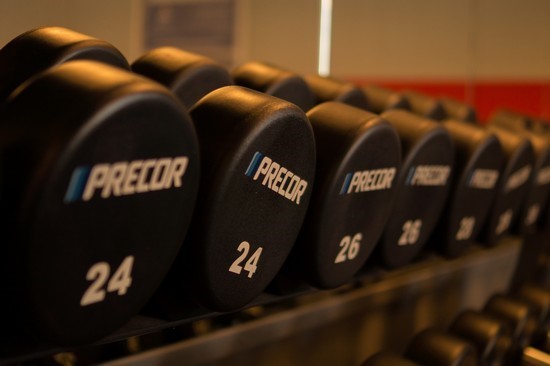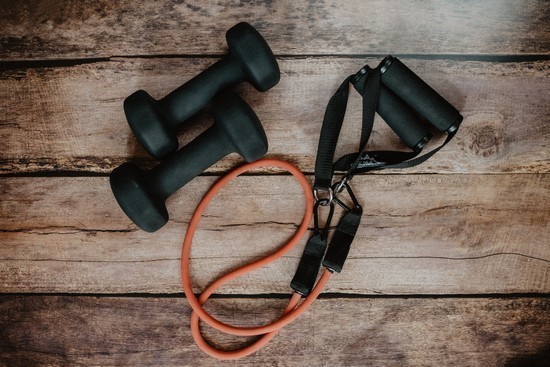During the
month of Ramadan, Muslims abstain from food and water throughout the day. Although
difficult, it is possible to still maintain your fast and continue to exercise.
In fact, there are many benefits associated with fasting and exercise in
combination. Nevertheless, there are potential risks, so it is important to
understand what to do to be safe.
اضافة اعلان
What happens to the
body without food?
Our body needs energy on a
constant basis in order to function properly. Normally, three square meals
provide the sustenance we need. From the meals we obtain sugar in the form of
glucose; this is the body’s main source of fuel.
After a meal, the body releases a hormone known as
insulin. Insulin is responsible for regulating the amount of
sugar circulating in the blood stream. Excess glucose is converted by insulin into glycogen which
is subsequently stored in the liver and skeletal muscles. Glycogen is a source
of fuel that is more or less readily available, but once at capacity, insulin
converts glycogen further into fatty acids, which are stored as body fat,
called adipose tissue. Adipose tissue is difficult to burn, but contains a high
amount of energy.
During fasting, the amount of free circulating
glucose begins to lower and as a result, a hormone known as glucagon is
released; it converts glycogen back into glucose. Depending on the level of
nourishment,
glycogen stores can provide the body with energy for 24 hours.
Past this point, the body has to rely on adipose tissue to provide energy.
Fat cells are broken down into glucose and ketone
bodies, which are an amazing source of energy for the heart,
brain, and
muscles, and are more efficient at providing energy than glucose. During this
time, there will be a huge reduction in body weight as the body continues to
utilize the stored body fat. Once the reserve of body fat is gone, the body
will turn to amino acids as a source of fuel. Amino acids are the building
block of proteins, which make up nearly all parts of the body.
Benefits of fasting
and exercise
One of the biggest benefits
of exercising and fasting is the amount of weight loss. Weight loss generally
depends on creating a calorie deficit. This can be achieved by limiting
calorie intake (restricting eating) or increasing calorie expenditure (exercising). By
combing fasting with exercising, one creates even more of a deficit.

Furthermore, due to fasting, changes in how the body
metabolizes fuel sources could potentially allow for significant weight loss
over a short period of time. Additionally, fasting releases several hormones
that aid in weight loss and metabolism, such as noradrenaline and human growth
hormone (HGH).
In type 2 diabetics, fasting can help maintain
glucose levels and even improve insulin sensitivity.
Fasting is also good for
those who suffer from chronic pain brought on by inflammation, especially in
conditions such as rheumatoid arthritis. Fasting can reduce the levels of
inflammatory markers in as quickly as one month.
Fasting also has benefits for the heart. Decreased
levels of inflammatory markers may reduce the risk of developing heart
diseases. Additionally, burning fat can help reduce the amount of
triglycerides, total cholesterol, and LDL (bad) cholesterol.
Research into fasting is still going on, but there
is promise that it prevents and manages certain conditions.
Although limited to animal testing, neurodegenerative
disorders such as
Alzheimer’s and Parkinson’s may be prevented or slowed with
the reduction in inflammation, and potentially due to the formation and
utilization of ketone bodies. However, more research is still needed.
Animal testing has found that fasting can help block
tumor formation and can also increase the effectiveness of chemotherapy.
Fasting may also delay aging and help with longevity, but long-term research in
humans is still needed.
Exercising has
many benefits that overlap with those of fasting. This includes weight loss,
diabetes management, and reduction in inflammation. It has greater benefit for
the heart and can dramatically lower and control blood pressure while also
preventing many heart conditions.
Concerns about
fasting and exercise
Although exercise and
fasting have benefits, the two in combination can come at a risk if one is not
cautious. One of the main concerns is dehydration. During Ramadan, abstaining
from drinking water puts you at risk of dehydration, especially in hot weather.
Fasting and exercising may contribute to significant water loss, which may
cause cramps or heatstroke and in severe cases, seizures due to electrolyte
imbalance or hypovolemic shock (low blood volume).

Another concern
with exercising while fasting is hypoglycemia, which occurs when there is not
enough free circulating
glucose in the blood stream. Despite the body having
reserves of glucose in the form of glycogen, there may not be enough, or the
body may not be able to keep up with the increased demand. Hypoglycemia may
present as irregular or fast heart rate, shaking,
anxiety,
sweating, tingling
or numbness in the lips or fingers, and in severe cases visual disturbances,
seizures, or loss of consciousness.
Lastly, muscle loss might be a concern for those who
are trying to gain muscle. During the transition from glycogen to adipose
utilization, there is a brief period where bulky muscle is used as a fuel
source.
How to exercise
safely
If done correctly and safely, there should be no concern about exercising
during
Ramadan. One of the most important things to consider is timing.
Exercising in the morning should generally be avoided, since it will leave you
exhausted throughout the day and potentially dehydrated.
For those who prefer to workout on an empty stomach,
working out shortly before the time you break your fast is an option, but that
may depend on local gym hours.
Ideally, working out during the time when eating and
drinking is allowed is the safest option, but that will mean adjusting your schedule
to exercise at night.
Replenishing vital nutrients is important when
exercising. Primarily, this includes carbohydrates to replenish the stores of
glycogen, protein (especially for those who are looking to gain muscle), water,
and electrolytes. Good sources of
carbohydrates breads and pasta, while good
sources of protein are nuts, shakes, or lean meat, like chicken. For
electrolytes, sports drinks contain high amounts of sugar which can help manage
glucose levels while fasting, but may interfere with weight loss goals. For
those looking for a good alternative to sports drinks, coconut water is a
suggestion.
Finally, it is important
to listen to your body. If you decide to work out while fasting and you begin
to experience any symptoms of hypoglycemia or dehydration, it is important to
assess whether to lower your intensity or stop the exercise altogether.
Read more Health
Jordan News



